![Baldini, Marco: Maniera <i>[Used Item]</i> (Another Timbre) Baldini, Marco: Maniera <i>[Used Item]</i> (Another Timbre)](https://www.teuthida.com/productImages/misc4/34562.jpg)
Seven works from Italian composer Marco Baldini, a follow-up to his well-received 2023 album Vesperi, this album introducing a variety of recent chamber works for strings from trios to quintets, performed by members of London's Apartment House ensemble, with the pieces "Selva", "Plutone" and "Otto" written specifically for Apartment House.
Out of Stock.
Quantity in Basket: None
Log In to use our Wish List
Shipping Weight: 2.00 units
Sample The Album:
Marco Baldini-composer
Mira Benjamin-violin
Chihiro Ono-violin, viola
Bridget Carey-viola
Anton Lukoszevieze-cello
James Opstad-double bass
Click an artist name above to see in-stock items for that artist.
Label: Another Timbre
Catalog ID: at223
Squidco Product Code: 35051
Format: CD
Condition: VG
Released: 2024
Country: UK
Packaging: Cardboard Gatefold
Recorded at The Old School, in Starston, UK, on October 16th, 2023, by Simon Reynell.
This is a USED (previously owned) item
Another Timbre Interview with Marco Baldini
I confess that, though I loved your previous CD Vesperi, I was very surprised at how well it did. So it's great to be releasing something else by you so quickly afterwards. All the pieces on the new disc are for small string ensembles (trios, quartets, quintets). How many of them were written for the CD/Apartment House, and how many existed already?
I must admit that I was surprised as well!
All the compositions in Maniera are quite recent. Selva, Plutone and Otto are the pieces I composed specifically for this project and for Apartment House. Selva is the youngest piece on the record, while Plutone and Otto are two pieces that I composed with Apartment House in mind, still not knowing at the time if they would be performed.
Quintetto is the oldest piece in the set because it was already completed in 2022. I consider it as a bit of a trait d'union, a bridge, between this record and the previous one. It shares some similarities with other pieces on Vesperi - for example, Quartetto, Trio, etc.- which involve the presence of a recurring pattern that could be defined as a refrain/chorus and, but not always, a widespread use of long pauses of silence. I generally name compositions that contemplate these elements in a very basic way with the ensemble number of their voices-for example, Quartetto, Trio, etc. Quintetto is, by the way, the only track on Maniera in which there is a use of silences similar to that which characterized almost all the Vesperi tracks. I chose to include it because I felt that it shares a similar horizon with the overall sound of the record as I imagined it.
Trio 2 is a piece that I drafted at some point in 2022, I guess, and then I completely forgot about it. I revised and modified it extensively after "rediscovering" it in 2023. Although it shares the presence of recurring elements with Quintetto, it is somewhat different - less schematic, more fluid and without silences.
At the recording session you were working with Apartment House for the first time. How did you find it, and was there anything that surprised you about the way they work?
Working with Apartment House was a kind of dream come true. Of course, I was familiar with the musical history, aesthetics and sound of the ensemble, but the direct experience of being in a recording session with them was incredible and very formative. Albeit in the rush of a recording session, I could appreciate the remarkable care with which they approach each piece, and the special attention to the timbral quality of the musical texture. Mira and Anton's discussions about the choices of which harmonic or overtone partial to enhance, in order to achieve a particular colour or nuance to the sound particularly delighted me.
Working with a group that has such a strong musical aesthetic led me to give them carte blanche in interpreting the pieces. This also allowed the music to get rid of some of my hang-ups and mind patterns. For example, while I was composing, I had thought of some of the pieces on the record with a slower tempo. In particular the two versions of Trio 2 were played by Apartment House in cut time instead of regular time as I'd conceived it. At the time I wasn't convinced about these "fast" versions and would have liked to re-record them in uncut tempo but, afterwards, listening to them again and again I began to appreciate them a lot, and I've now decided that those are the definitive versions.
Another example is Otto: Anton had the brilliant idea to mute the whole quartet for this piece, and that was an important choice for the sound of the track. So in general Apartment House's role was crucial and they greatly influenced and shaped the results you hear.
I would also like to mention that, besides being wonderful musicians, Anton, Mira, Bridget, Chihiro and James are also very nice and easy-going people, and this is important for me. Then recording in the beautiful Old School in Starston, which Simon Limbrick has turned into a fantastic studio, was definitely a treat.
Some of the titles are self-explanatory (Trio, Quintetto), but can you tell us what the other ones mean - Plutone, Arpocrate, Selva and Otto?
Excluding the self-explanatory titled pieces, which I mentioned above, I have no definite pattern for choosing piece names. Most often the name comes after the piece is written or in the process of and may be defined by a suggestion that the music evokes or, if the piece is based on some pre-existing element, something that refers back to the original source.
Selva is a title that came to me by suggestion. The piece is based on a series of seven quite dark-sounding chords that I had written down and then abandoned a couple of years ago. When I started working on the piece I used them as source material, turning them over, trying different permutations of them, etc. To my surprise what came out had a very different feel from the gloomy sound of the original chords. The piece had a relaxed, shifting quality with an Apollonian mood. It immediately made me think of a walk in a forest and the light filtering through the tree canopy. At this point I needed a somewhat austere beginning that could return some tension that would then dissipate in the following movement. I was listening to Bluebeard's Castle (1911) by Béla Bartók a lot at the time, and the seven rooms of the opera immediately made me think of the seven chords I had used to write the piece. This totally random correspondence intrigued me, so I thought of using a small excerpt from Bluebeard's Castle that suited my needs to shape the intro of the piece. All this leads, finally, to the title.
Selva is an Italian word, today sounding somewhat archaic, designating a "wood" or a "small forest," but also "a multitude" or "a tangle." Between the sixteenth and seventeenth centuries it was also used, even in music, as a synonym for miscellany or collection. To cite one example out of all the Selva morale e spirituale (1641) by Claudio Monteverdi. All these shades of meaning I think represented well the sound image I had of the piece.
After all these words someone may think, and I can't fault them for it, that the explanation of the title is more interesting than the piece itself!
The origin of the title Plutone is less abstract. The piece is based on a symphony from Monteverdi's L'Orfeo. Favola in musica (1607). In this composition the original score is as if sent on a loop and each time some harmonic element dissolves until only a distant echo of the initial harmonic structure remains. At first the piece was to be called Caronte, because in the score the symphony is located near the beautiful bass aria O tu ch'innanzi morte sung by the character whom Orfeo meets at the beginning of his catabasis. But the sound of the title didn't convince me much, so I opted for Plutone, whose character appears in the opera shortly afterwards.
Arpocrate is a title chosen a posteriori. I am a big fan of Walter Marchetti, and last year I was asked to curate a performance of the piece La caccia. Quartetto No. 2 and create a visual work related to Arpocrate seduto sul loto (1968) - the book/collection in which the score is contained- for Mezz'aria, an exhibition related to Italian sound art curated by Gabriele Tosi and Nub Project Space that was held at the "Museo del Novecento e del Contemporaneo di Palazzo Fabroni" in Pistoia. So, I had Arpocrate in my head for quite a while. The piece, which is all played in a high-pitched texture, seemed to me to be suitable to express the sound suggestion that the mythological tradition concerning the child god communicated to me.
In contrast Otto has a more prosaic but also sweeter origin. In this piece, which is based on an excerpt from Bartók's String Quartet No. 5, every string always plays double stops through all the piece, so the total number of voices is eight. Otto means eight in Italian. I had written this title, which I thought was absolutely tentative on the score. But it happens that Otto is also the name of my (and my boyfriend's) dog. I love Otto very much and eventually I got used to this title. In addition, the piece has a somewhat solemn but also serene development, which I thought it was compatible with Otto. So, I decided to keep it!
A quick mention about the album title as well, which may sound a bit weird. "Maniera" or "Manierismo" (Mannerism in english), at least in Italy, was used to identify with a certain scorn an artistic expression that echoed stylistic features of the past or was supposed to lack originality. Manierismo is also the name by which we refer to certain Tuscan art from the 1520s to the Baroque of which the greatest exponents were Pontormo and Rosso Fiorentino. I love them both madly, and if you look at their works you can see that while they drew heavily from 15th-century styles, they had a very strong originality. Maniera is also used for certain Renaissance / Baroque music with the same ambivalence. Sometimes the term Maniera is used similarly to Prattica, but the latter term is more connotative.
Coming to more personal matters, the title also refers to my anxieties as a composer. The idea of not being "contemporary" enough, in the expressive sense of the word, too narrative and not abstract enough, in my music is an intrusive thought that has been buzzing in my head ever since I left the world of free improvisation.
To my mind you need have no worries on that score. I keep coming across works by composers written 30 or 40 years ago which sound wonderfully 'contemporary' to me - much more so than a lot of 'new music' being produced today. I'm not sure what terms such as 'cutting edge' or 'experimental' would mean any more. Anyway, are you currently composing any new music, and do you have any interesting commissions or ongoing projects?
I am not a very prolific composer, partly because of time issues, but I am always working on something new. Lately I have been working on a trio for low pitched instruments (possibly cello, bass clarinet and bassoon) and a piece for (many) strings. I also have this idea in progress of a solo piece called Pir for cello with bordone and percussion. I already have the structure in mind, but I need to write it down. Curiously, I am much slower when composing pieces for solo instruments than those for ensemble!
To be honest, I rarely get commissions. However, recently Slovak guitarist Ondrej Vesely asked me for a piece for classical guitar.
As a performer I am collaborating with Werner Dafeldecker on a trumpet and double bass duo project.
Besides this, my ensemble Blutwurst are working on translating and implementing for acoustic ensemble two originally electroacoustic works by Swedish/Finnish composer Marja Ahti, which we are going to present and record before next summer.
Artist Biographies
• Show Bio for Marco Baldini "Marco Baldini (Florence, 1986) graduated in Roman Archeology at the Università degli Studi di Firenze. He studied music and trumpet with Tolmino Marianini, Luca Marianini and with Donato De Sena, at the Scuola di Musica di Fiesole. He attended workshops with Axel Dörner, Birgit Ulher, Roswell Rudd and Mario Bertoncini. In 2011 he founded Blutwurst with Daniela Fantechi and Edoardo Ricci. Since 2015 he has been collaborating with Tempo Reale on several projects as redactor for musicaelettronica.it and as curator for the series of concerts TRK. He collaborated also with London based artist Alessandra Ferrini for the soundtracks of her essay movies Negotiating Amnesia (2015) and Radio Ghetto Relay (2016)." ^ Hide Bio for Marco Baldini • Show Bio for Mira Benjamin "Mira Benjamin is a Canadian violinist, researcher and new-music instigator. She performs new and experimental music, with a special interest in microtonality & tuning practice. She actively commissions music from composers at all stages of their careers, and develops each new work through multiple performances. Current collaborations include new works by Anna Höstman, Scott McLaughlin, Amber Priestley, Taylor Brook and James Weeks. Since 2011, Mira has co-directed NU:NORD - a project-based music and performance network which instigates artistic exchanges and encourages community building between music creators from Canada, Norway & the UK. To date NU:NORD has engaged 79 artists and commissioned 62 new works. Through this initiative, Mira hopes to offer a foundation from which Canadian artists can reach out to artistic communities overseas, and provide a conduit through which UK & Norwegian artists can access Canada's rich art culture. Originally from Vancouver, British Columbia, Mira lived for ten years in Montréal, where she was a member of Quatuor Bozzini. Since 2014 she has resided in London (UK), where she regularly performs with ensembles such as Apartment House, Decibel, and the London Contemporary Orchestra Soloists, and is currently the Duncan Druce Scholar in Music Performance at the University of Huddersfield. Mira is the recipient of the 2016 Virginia Parker Prize from the Canada Council for the Arts. The prize is awarded annually to a Canadian musician in recognition of their contribution to the artistic life in Canada and internationally." ^ Hide Bio for Mira Benjamin • Show Bio for Chihiro Ono "Japanese-born violinist Chihiro Ono use music as a tool to explore human abilities, link people and places, and open human beings' minds." ^ Hide Bio for Chihiro Ono • Show Bio for Bridget Carey "Bridget Carey studied jointly at the Royal Academy of Music and London University and has pursued a varied freelance career based in London, and has developed a particular reputation in the field of new music. For 15 years she premiered new chamber opera for the Almeida, whilst working in dance scores with Siobhan Davies and Rambert companies, classical contemporary with Opus 20 and Music Projects/London and new complexity with Ensemble Expose. From 1995-2005 she was viola player with the Kreutzer string quartet. More recently, her chamber music interests include Okeanos and the RPS award-winning experimental music group Apartment House, with whom she continues to add to her chamber music discography. She has been a member of Britten Sinfonia for the last 20 years, and is a regular guest with London Sinfonietta and BCMG, among others." ^ Hide Bio for Bridget Carey • Show Bio for Anton Lukoszevieze "Cellist Anton Lukoszevieze (born 1965 in the UK) is one of the most diverse performers of his generation and is notable for his performances of avant-garde, experimental and improvised music. Anton has given many performances at numerous international festivals throughout Europe and the USA (Maerzmusik, Donaueschingen, Wien Modern, GAS, Transart, Ultima, etc.etc.). He has also made frequent programmes and broadcasts for BBC Radio 3, Danish Radio, SR2, Sweden, Deutschland Rundfunk, WDR, Germany and ORT, Austria. Deutschlandfunk, Berlin produced a radio portrait of him in September, 2003. Anton has also performed concerti with the City of Birmingham Symphony Orchestra at the 2001 Aldeburgh festival and the Netherlands Radio Symphony Orchestra. He has collaborated with many composers and performers including David Behrman, Alvin Lucier, Amnon Wolman, Pierre Strauch, Rytis Mazulis, Karlheinz Essl, Helmut Oehring, Christopher Fox, Philip Corner, Alvin Curran, Phill Niblock and Laurence Crane, He is unique in the UK through his use of the curved bow (BACH-Bogen), which he is using to develop new repertoire for the cello. From 2005-7 he was New Music Fellow at Kings College, Cambridge and Kettles Yard Gallery. Anton is the subject of four films (FoxFire Eins) by the renowned artist-filmmaker Jayne Parker. A new film Trilogy with compositions by Sylvano Bussotti, George Aperghis and Laurence Crane premieres at The London Film Festival, October 2008. In November will premiere a new hour long work by Christopher Fox for cello and the vocal ensemble Exaudi commissioned by the Huddersfield Contemporary Music Festival and will also present new solo works for cello and live electronics. Anton is also active as an artist, his work has been shown in Holland (Lux Nijmegen), CAC, Vilnius, Duisburg (EarPort), Austria, (Sammlung Essl), Wien Modern, The Slade School of Art, Kettles Yard Gallery, Cambridge Film Festival and Rational Rec. London. His work has been published in Musiktexte, Cologne, design Magazine and the book SoundVisions (Pfau-Verlag, Saarbrucken, 2005). Anton Lukoszevieze is founder and director of the ensemble Apartment House, a member of the radical noise group Zeitkratzer and recently made his contemporary dance debut with the Vincent Dance Company in Broken Chords, Dusseldorf." ^ Hide Bio for Anton Lukoszevieze • Show Bio for James Opstad "James Opstad is a United Kingdom bassist, composer and one third of duck-rabbit music." ^ Hide Bio for James Opstad
6/24/2024
Have a better biography or biography source? Please Contact Us so that we can update this biography.
6/24/2024
Have a better biography or biography source? Please Contact Us so that we can update this biography.
6/24/2024
Have a better biography or biography source? Please Contact Us so that we can update this biography.
6/24/2024
Have a better biography or biography source? Please Contact Us so that we can update this biography.
6/24/2024
Have a better biography or biography source? Please Contact Us so that we can update this biography.
6/24/2024
Have a better biography or biography source? Please Contact Us so that we can update this biography.
Track Listing:
1. Selva 08:27
2. Trio 2 (version for violin, viola & cello) 05:59
3. Arpocrate 04:13
4. Plutone 10:35
5. Quintetto 07:58
6. Trio 2 (version for 2 violins & viola) 05:46
7. Otto 06:49
Used CDs
Compositional Forms
Chamber Rock
Quintet Recordings
London & UK Improv & Related Scenes
Trio Recordings
Large Ensembles
Used CD Alphabetic List
Search for other titles on the label:
Another Timbre.


![Baldini, Marco: Maniera <i>[Used Item]</i> (Another Timbre) Baldini, Marco: Maniera <i>[Used Item]</i> (Another Timbre)](https://www.teuthida.com/productImages/full/35051.Full.jpg)
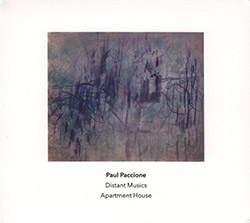

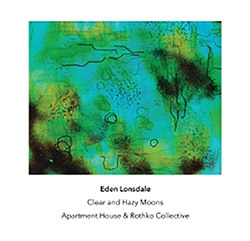
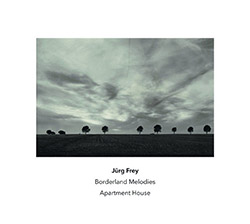
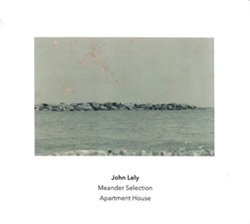
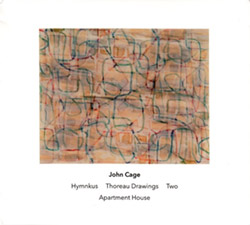
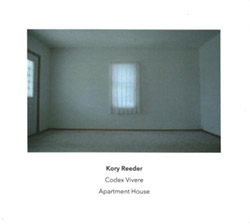



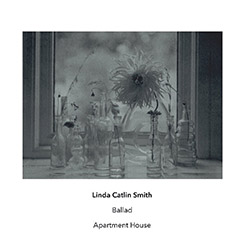
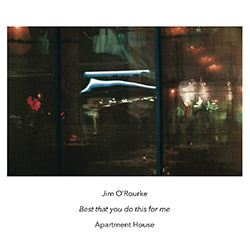



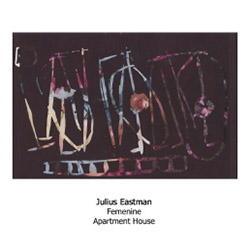
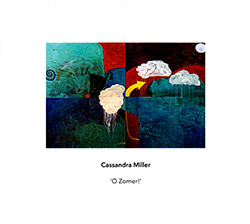



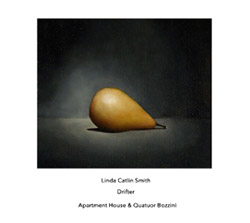
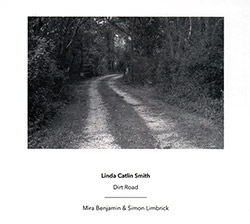


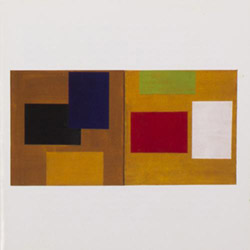






![Ackerley / Prymek / Turner: All Hope With Sleeping Minds [CASSETTE]](https://www.teuthida.com/productImages/misc4/35950.jpg)
![Myers, David Lee : Tin Drop Tear [BOOK w/ DOWNLOAD]](https://www.teuthida.com/productImages/misc4/36030.jpg)



![Schindler, Udo / Sandy Ewen / Damon Smith: Munich Sound Studies Vols. 4, 5 & 6 [3 CDs]](https://www.teuthida.com/productImages/misc4/35966.jpg)






![Turbulence Orchestra & Sub-Units: Smear Out the Difficulties (Double Live) [2 CDs]](https://www.teuthida.com/productImages/misc4/36048.jpg)
![Perelman, Ivo / Tyshawn Sorey: Paralell Aesthetics [2 CDs]](https://www.teuthida.com/productImages/misc4/35871.jpg)


![Sjostrom, Harri: SoundScapes #4 Festival Berlin 2023 [3 CDs]](https://www.teuthida.com/productImages/misc4/35874.jpg)

![Musicworks Magazine: #150 Winter 2024/25 [MAGAZINE + CD]](https://www.teuthida.com/productImages/misc4/36035.jpg)





![Glenn, Jordan: Flustered [CASSETTE]](https://www.teuthida.com/productImages/misc4/35948.jpg)


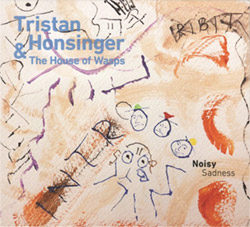
![Lindorff-Ellery, Evan: Church Recordings from Monhegan [CASSETTE]](https://www.teuthida.com/productImages/misc4/35949.jpg)
![Schindler, Udo / Werner Dafeldecker / Gunnar Geisse: Travelling Sound Images - Cognitive Transfers [Trio]](https://www.teuthida.com/productImages/misc4/35767.jpg)

![Egberth, Dennis: The Dennis Egberth Dynasty [VINYL]](https://www.teuthida.com/productImages/misc4/35549.jpg)


![Schindler, Udo / Rieko Okuda / Eric Zwang Eriksson: Disturbed Terrains [2 CDs]](https://www.teuthida.com/productImages/misc4/35330.jpg)
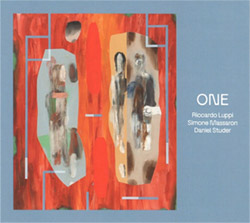
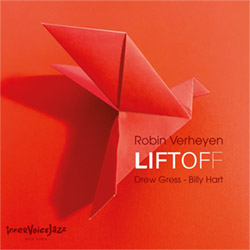
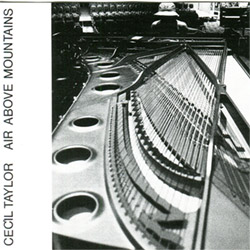


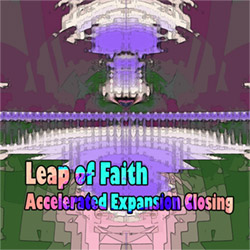
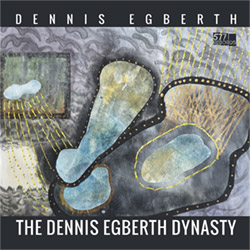
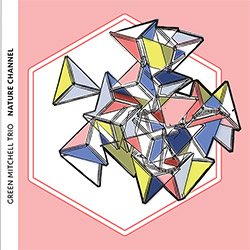

![Wolf Eyes / Anthony Braxton: Live At Pioneer Works, 26 October 2023 [VINYL]](https://www.teuthida.com/productImages/misc4/35839.jpg)




![Olencki, Weston : Pearls Ground Down To Powder [VINYL]](https://www.teuthida.com/productImages/misc4/35956.jpg)
![Myers, David Lee: Oculus [2CDs]](https://www.teuthida.com/productImages/misc4/35857.jpg)


![dustsceawung: dustsceawung [CASSETTE w/ Download]](https://www.teuthida.com/productImages/misc4/35753.jpg)




![Halls of the Machine: Atmospheres For Lovers And Sleepers [CASSETTE w/ DOWNLOAD]](https://www.teuthida.com/productImages/misc4/35806.jpg)



![AHC (Alexander Cooper): Lase [2 CDs]](https://www.teuthida.com/productImages/misc4/35754.jpg)



![Fagaschinski, Kai / Yan Jun : Graveyard Processions [VINYL w/ DOWNLOAD]](https://www.teuthida.com/productImages/misc4/35474.jpg)
![Brant, Cody / Carl Kruger: Smoke Detail [CASSETTE w/ DOWNLOAD]](https://www.teuthida.com/productImages/misc4/35551.jpg)







![Zorn, John / JACK Quartet: The Complete String Quartets [2 CDs]](https://www.teuthida.com/productImages/misc4/35609.jpg)

![Lonsdale, Eden: Dawnings [2 CDs]](https://www.teuthida.com/productImages/misc4/35480.jpg)







![Sanna, Claudio: Compositori Sardi Contemporanei II [2 CDs]](https://www.teuthida.com/productImages/misc4/35317.jpg)







![Zurria, Manuel: Fame di Vento [3 CDs]](https://www.teuthida.com/productImages/misc4/35167.jpg)

![Granberg, Magnus / Nattens Inbrott / Skogen: Holde Traume, Kehret Wieder! [2 CDs]](https://www.teuthida.com/productImages/misc4/35038.jpg)

![Electric Bird Noise / Derek Roddy: 8-10-22 [CD EP]](https://www.teuthida.com/productImages/misc4/35970.jpg)








![Elephant9 : Mythical River [VINYL]](https://www.teuthida.com/productImages/misc4/34624.jpg)



![Elephant9 with Terje Rypdal: Catching Fire [VINYL 2 LPs]](https://www.teuthida.com/productImages/misc4/35355.jpg)
![Deerlady (Obomsawin, Mali / Magdalena Abrego): Greatest Hits [VINYL]](https://www.teuthida.com/productImages/misc4/34876.jpg)







![Surplus 1980: Illusion of Consistency [CD]](https://www.teuthida.com/productImages/misc4/35069.jpg)
![Staiano, Moe: Away Towards the Light [VINYL + DOWNLOAD]](https://www.teuthida.com/productImages/misc4/35037.jpg)



![Caveira (Gomes / Sousa / Abras / Ferrandini): Ficar Vivo [VINYL]](https://www.teuthida.com/productImages/misc4/34643.jpg)
![Coley, Byron: Dating Tips for Touring Bands [VINYL]](https://www.teuthida.com/productImages/misc4/17906.jpg)

![Lost Kisses: My Life is Sad & Funny [DVD]](https://www.teuthida.com/productImages/misc4/lostKissesDVD.jpg)